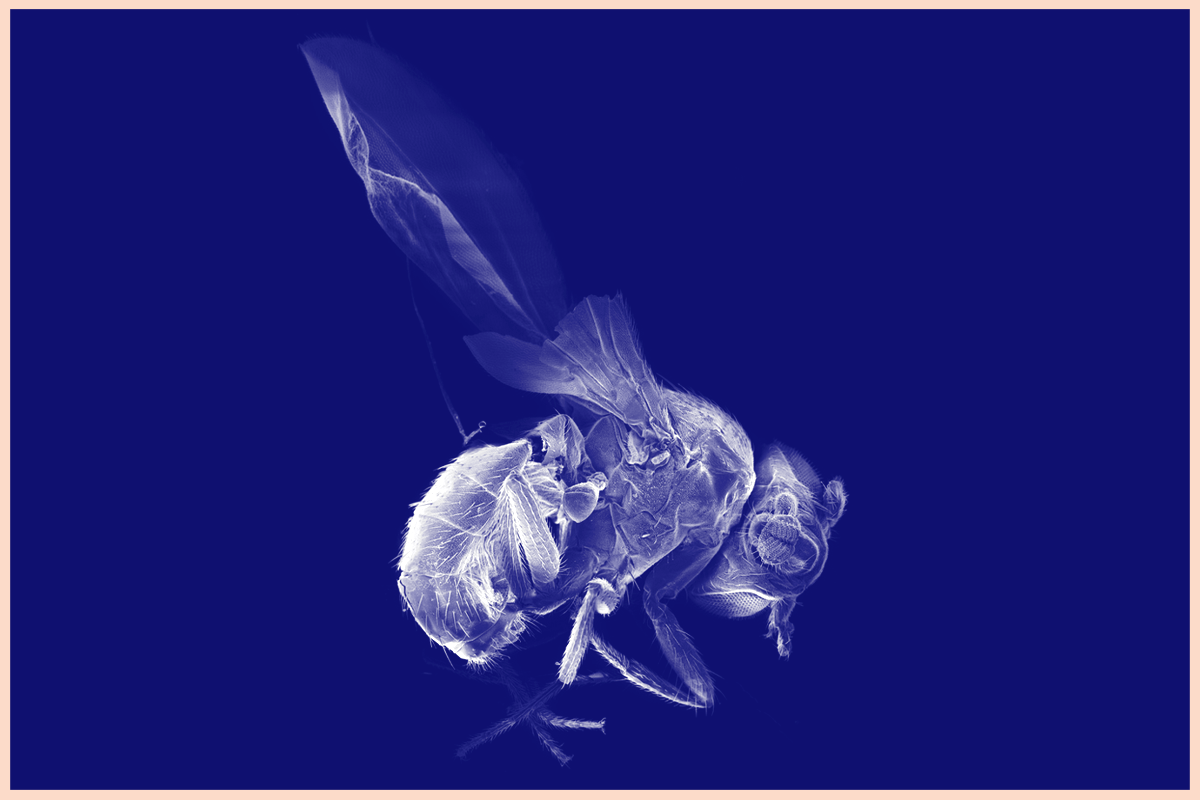
Exclusive: Harvard University lays off fly database team
The layoffs jeopardize this resource, which has served more than 4,000 labs for about three decades.
Eight Harvard University employees who maintain a critical fruit fly data repository were notified this week that they are going to be laid off, The Transmitter has learned.
The repository, called FlyBase, houses genetic and molecular data on Drosophila melanogaster, including available stocks and other information from publications and large-scale projects. The layoffs jeopardize this resource, which has served more than 4,000 labs across the fly research community for about three decades.
The loss “will be utterly devastating if nobody steps in to fix this problem,” says Amanda Moehring, associate professor of biology at Western University in Canada, who uses FlyBase in her work.
The employees learned during a Zoom meeting on 11 August that they will no longer be employed as of 12 October, according to Norbert Perrimon, professor of genetics at Harvard Medical School, who is one of FlyBase’s principal investigators but not a FlyBase employee. Perrimon’s federal grant that paid for the employees’ salaries was among the many grants canceled by the Trump administration in May, according to the grant tracker Grant Witness (previously called Grant Watch). Since then, the team had been scrambling to find new funding sources, The Transmitter reported in June.
In the interim, Harvard University provided temporary financial support to keep FlyBase going, but it recently decided to stop the bridge funding, Perrimon wrote in a 12 August email to The Transmitter. The university’s Faculty of Arts and Sciences made the decision to let the eight team members go, he added in another email. (A spokesperson for Harvard’s Faculty of Arts and Sciences was unable to confirm the layoffs but said they were looking into the matter.) Although FlyBase receives funding from other sources, the National Institutes of Health grant was the driving force behind it. “As of today, unless a miracle happens, the entire Harvard FlyBase team will be gone in early October,” Perrimon wrote in another email.
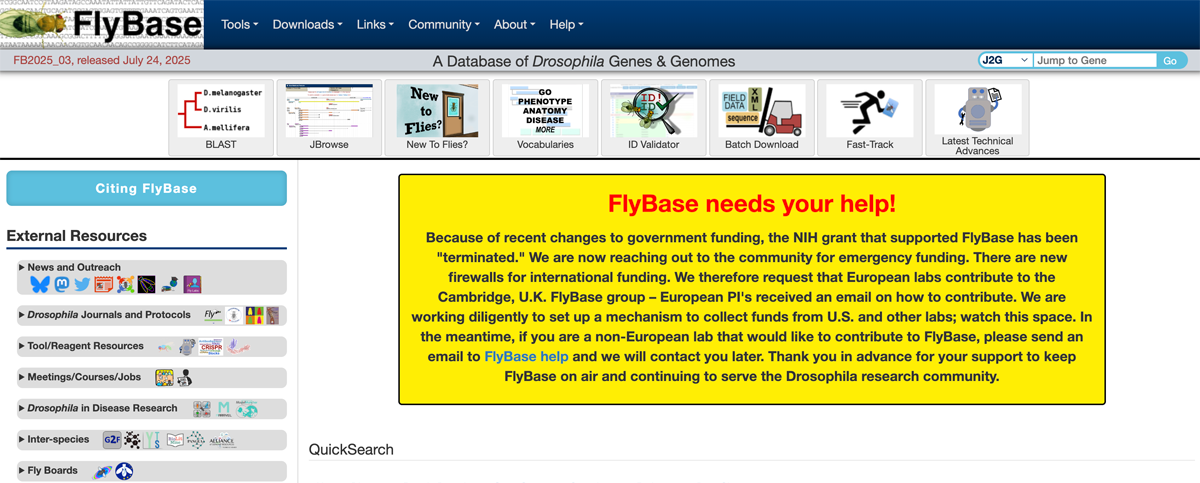
Community support: FlyBase leaders are asking for help to continue funding the database.
The news comes as a shock to Drosophila researchers, says Timothy Mosca, assistant professor of neuroscience at Thomas Jefferson University. FlyBase is crucial to their work, allowing them to find genes, study brain regions and identify reagents. It is one of those “inescapable tools that we all use, and it is absolutely essential to everything we do,” Mosca says. Without it, fly research will suffer, he adds. “Fly research and model organism research has been a core of discovery for many years, and if that pillar falls, the rest of science is not far behind.”
T
he FlyBase consortium is made up of four institutions—Harvard University, Indiana University Bloomington, the University of Cambridge, and the University of New Mexico—all of which were supported in part by the canceled Harvard grant. The Harvard employees make up about one-third of the entire FlyBase team.Losing a third of the FlyBase team might mean that the database falls by the wayside, with fewer updates and less functionality as it continues being neglected, says Brian Calvi, professor of biology and principal investigator of FlyBase at Indiana University Bloomington. “The website will stay up as a static instance for longer but will quickly get stale without further work on it.”
The Harvard grant also covered the salaries of FlyBase staff at the other three institutions. For now, the remaining teams have been able to keep their staff, thanks to funding they have raised from the research community, Calvi says. The three employees on his team at Indiana University Bloomington are employed for the next few months, but he says he still worries for the future of the employees across all of FlyBase.
The short-term help from the community can keep the database running for only a few months, Calvi adds, and they would need a big influx of money to continue the project long term. The team is working on finding funding from other sources, including talking with philanthropic organizations, tapping into existing funds from their collaboration with the Alliance of Genome Resources and developing a pipeline through which people from the research community can donate, Calvi says.
The team is “working diligently to set up a mechanism to collect funds from U.S. and other labs,” according to the FlyBase website. And Harvard is in the middle of negotiations with the Trump administration, which could ultimately reinstate some of the university’s federal funding.
Calvi says he hopes the community will step forward to keep the valuable resource afloat. “We have not given up; [FlyBase] is too important for Drosophila research,” he says. “We’re punching with both hands and trying to come up with creative ways to continue to fund our staff.”
Recommended reading
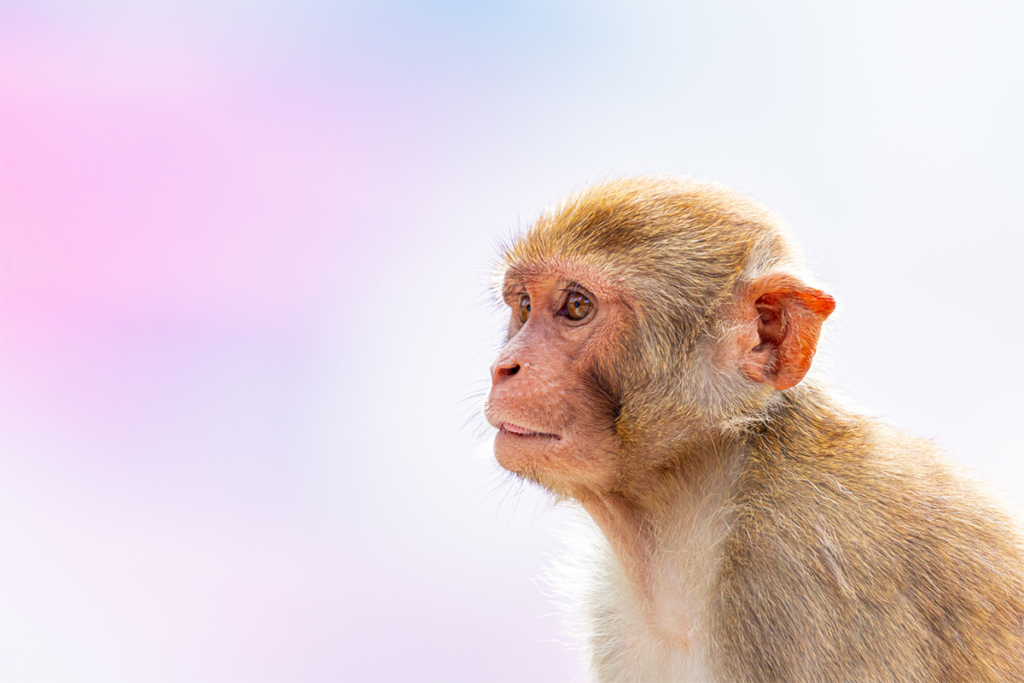
Oregon primate research center to negotiate with NIH on possible transition to sanctuary

Neurophysiology data-sharing system faces funding cliff
Explore more from The Transmitter
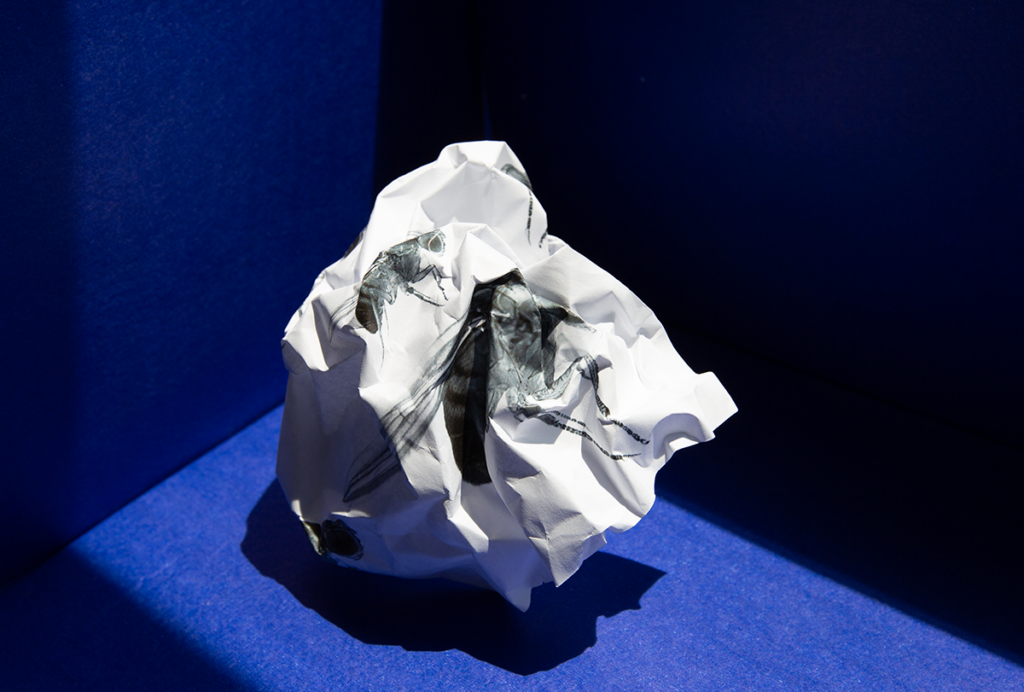
FlyBase funding squashed amid Harvard grant terminations
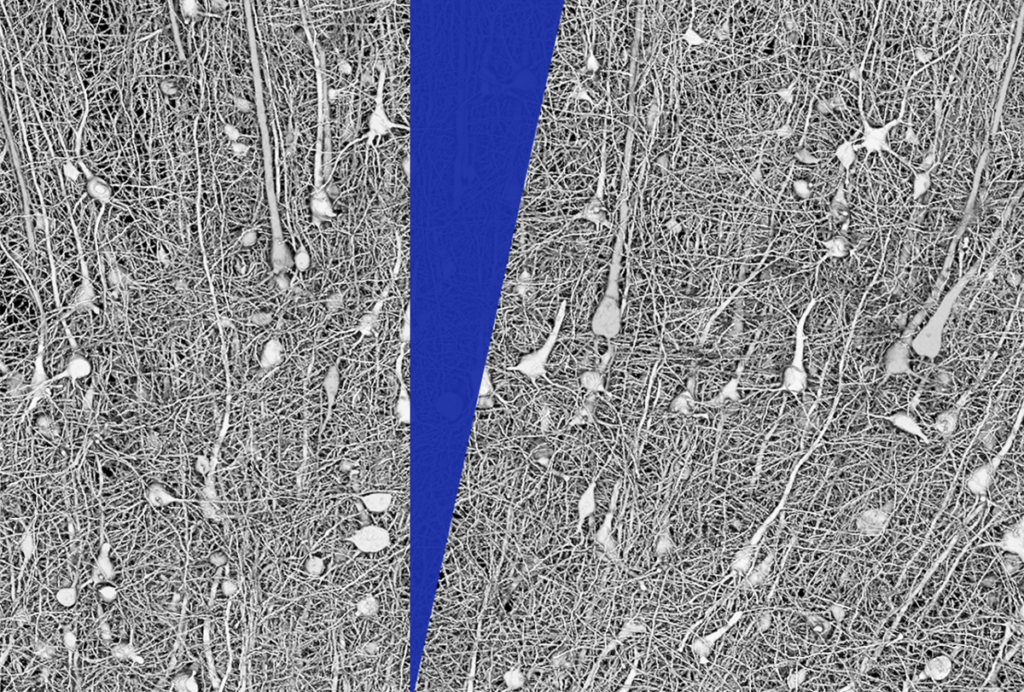
Multisite connectome teams lose federal funding as result of Harvard cuts

